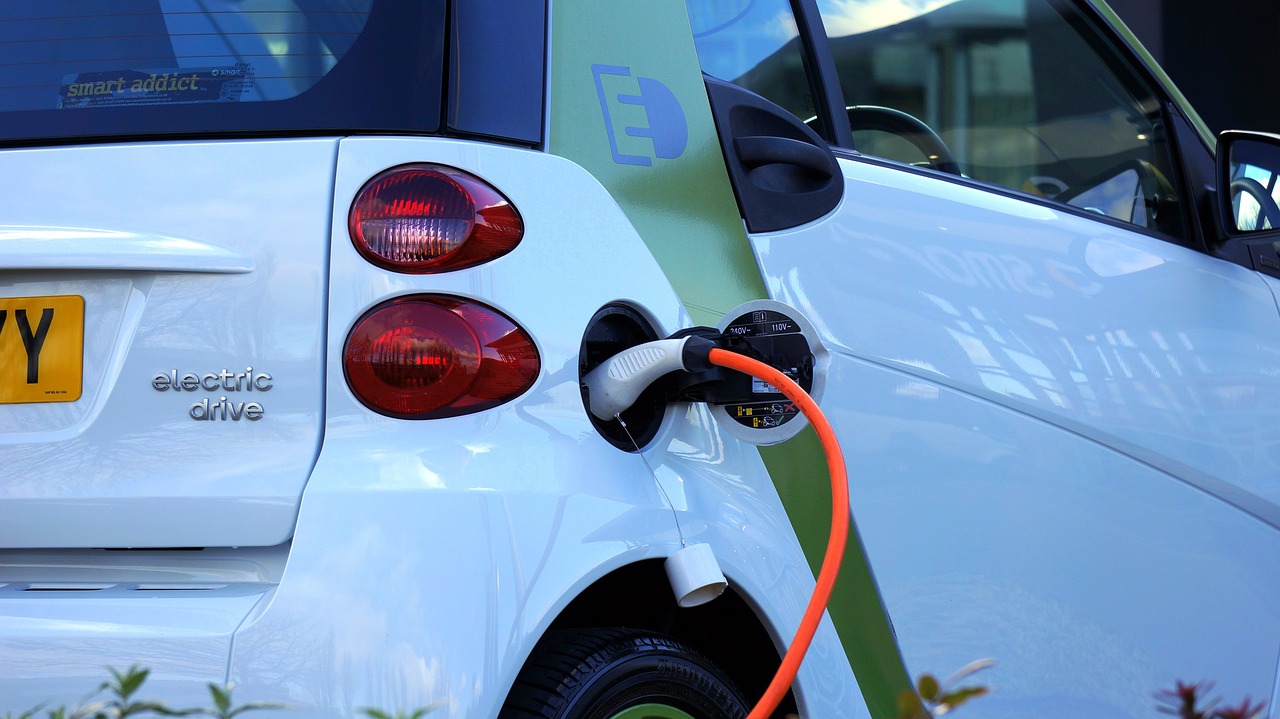With the UK Government pledging to reinstate the 2030 ban on the sales of new internal combustion engines (ICE) or put more simply, petrol and diesel cars/vans, we thought it would be a good idea to give you a quick guide on electric vehicles (EV).
What is an Electric Vehicle (EV)?
The Parliamentary Office of Science and Technology official description is:
Electric Vehicles use electric motors to drive their wheels. They derive some or all of their power from large, rechargeable batteries. The distance an EV can drive between recharges is known as its range.
Let’s have a look at the different types and some of the names you might have heard of:
- All-electric EVs – where the battery is the only power source. The range (distance they can travel) will vary, according to driving style, terrain and the use of auxiliary equipment such as heating/air conditioning.
- Plug-in Hybrids (PHEVs) – can switch between running on electricity, petrol or diesel. They typically have a smaller battery, and therefore a lower battery powered range of between 10-40 miles. However their maximum range is equivalent to a petrol or diesel car. Both Plug-in Hybrid and all-electric EVs are recharged by plugging them in to the electricity grid.
- Hybrids (HEVs) – which do not plug in, such as the Toyota Prius, have a much smaller battery which is recharged while driving. HEVs can drive in electric mode for a few miles and then revert to using petrol or diesel.
- Fuel Cell Vehicles – generate their own electricity on-board from a fuel such as hydrogen, and do not need to plug in to the electricity grid to recharge. Re-fuelling is similar to a petrol or diesel car.
Which type of EV is best for me?
This is a personal choice and will be dependent on a number of factors including, affordability, the type and distance of journeys you make and charging infrastructure where you live.
According to a UK Government report, 99% of car journeys in England are under 100 miles, so most could be made by an EV without needing to recharge.
How much do EVs cost?
Currently EVs cost more to buy than a comparable petrol or diesel vehicle. While they have less mechanical parts than a conventional vehicle, battery prices are a substantial cost. Many modern EVs use lithium-ion batteries and it takes a lot of time and effort to turn raw lithium into something that can be used. Some manufacturers offer incentives and lease plans for the battery, so include this in your car purchase research.
As EVs become more popular and manufacturers produce more vehicles and models, plus technology improvements, prices are anticipated to reduce.
Vehicle range
While vehicle range isn’t an issue with hybrids, as they will run on petrol and diesel, in addition to electric, vehicle range has always been a concern for drivers. It’s therefore encouraging to hear that according to the Society of Motor Manufacturers and Traders (SMMT), the average electric range for new EVs launched in 2023 was nearly 300 miles, compared to 210 miles in 2020. Of course, some of this will be reflective of the driving conditions, roads and the way you drive, plus use of aircon and technology within the vehicle.
Charging points
The term “range anxiety” describes a very real fear of running out of battery and knowing where to charge it up.
While you can have a charger fitted at home, clearly there will be times when you need to recharge when out and about.
The good news is that, the number of charging points is increasing. According to Zap Map the number of charging points grows by the day and at the end of October 2024, there were 71,459 electric charging points across 36,060 charging locations (UK only). This represents a 38% increase in the total number of charging devices since October 2023.
In October 2024, 1,025 new charging devices were added to the Zap-Map database. You can view local ones to you or your journey at zap map live – you might not have even known they were there!
What about insuring your EVs
Do I need specialist insurance?
The simple answer is no. Whilst you can buy specialist insurance for your EV, most major insurers now cover electric cars.
Does it cost more to insure an EV?
This can depend on the EV you choose, but according to wepoweryourcar.com, on average, insurance is more expensive than petrol and diesel vehicles in the UK.
This could be linked to expensive parts, higher repair costs and the availability of garages with qualified mechanics. While electric cars have fewer moving parts than petrol or diesel vehicles, some components like the lithium-ion batteries are very expensive to repair if damaged.
As EVs become more commonplace this may change, but also remember that electric cars may benefit from other savings, such as congestion charges and zero vehicle road tax, but it is worth noting that from April 2025, EVs will pay Vehicle Excise Duty (VED).
Car insurance from Forces Mutual
Forces Mutual Car Insurance offers policies for a range of EVs. You don’t need to buy a special EV policy and you can get a quote in the usual way.
You can either call us on 0151 363 5290 or go online at www.forcesmutual.org/car
Forces Mutual Car Insurance is provided by ERS.
PMGI Limited, trading as Forces Mutual, is authorised and regulated by the Financial Conduct Authority. Financial Services Register No. 114942. Registered in England & Wales No. 1073408. Registered office: Brookfield Court, Selby Road, Leeds, LS25 1NB.
For your security, all telephone calls are recorded and may be monitored.
WC CI WEB 0003/0004 v 2 29.11.24

